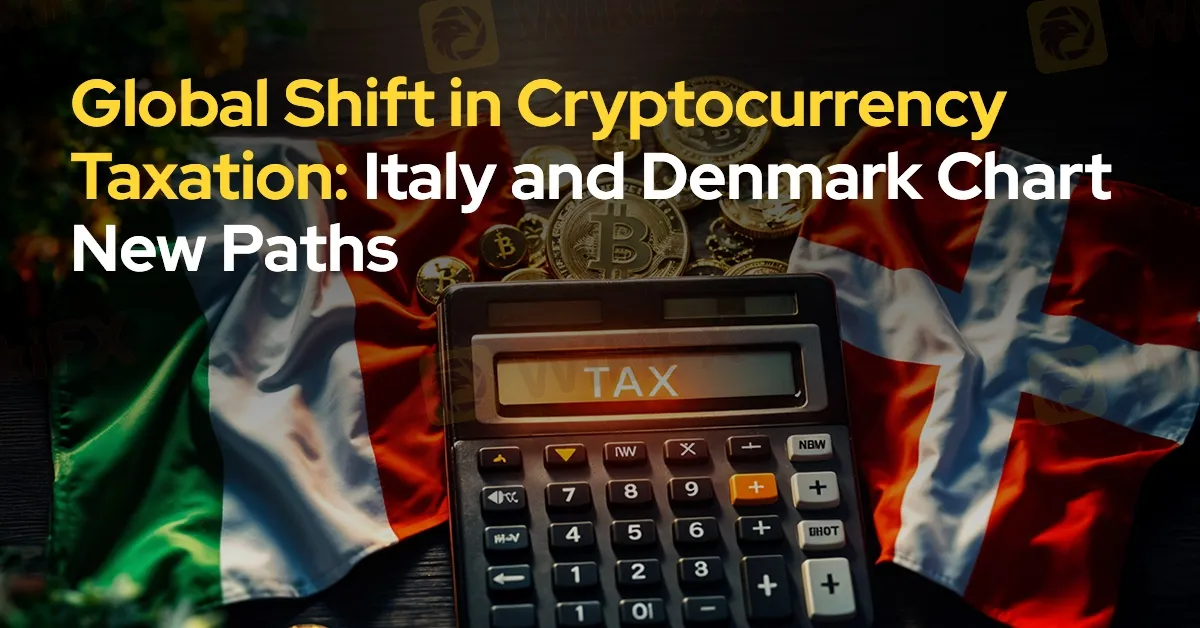Global Shift in Cryptocurrency Taxation: Italy and Denmark Chart New Paths
Abstract:Italy and Denmark are rethinking how to tax digital assets. Italy’s government, initially proposing a substantial capital gains tax increase on crypto to 42%, has decided to lower this figure to 28%. Meanwhile, Denmark is advancing a different strategy by recommending a mark-to-market taxation model, which would impose taxes on crypto based on annual value changes rather than sale or exchange events.

In an evolving landscape of cryptocurrency regulation, Italy and Denmark are rethinking how to tax digital assets. Italys government, initially proposing a substantial capital gains tax increase on crypto to 42%, has decided to lower this figure to 28%. This shift, supported by Prime Minister Giorgia Meloni's administration, marks a recalibrated approach following a notable increase in cryptocurrency values and rising support from pro-crypto lawmakers in the United States. Sources at Bloomberg indicate the revised rate aims to achieve a balanced increase, departing significantly from the 26% jump initially proposed.
Defending the decision on 31 October, Minister of Economy and Finance Giancarlo Giorgetti suggested that the moderated rate reflects a need for proportionality. This latest proposal follows Italy's establishment of a 26% tax on crypto gains exceeding €2,000 in last year's budget—a first step in closing the gap on unregulated digital asset profits. The initial 42% tax plan was projected to generate around $18 million annually, but the newly proposed 28% rate will likely yield less revenue. This revision, however, still requires approval from Italian lawmakers who have expressed differing views on crypto taxes. Some, like Giulio Centemero from Italy‘s Chamber of Deputies, warn that taxing cryptocurrency too heavily could stall the sector’s growth and discourage further investment.

Meanwhile, Denmark is advancing a different strategy by recommending a mark-to-market taxation model, which would impose taxes on crypto based on annual value changes rather than sale or exchange events. Under this system, cryptocurrency holdings would be categorised as capital income, with taxes applied to unrealised gains by year-end. This approach seeks to address the inherent challenges of taxing decentralised assets, which remain largely outside traditional regulatory frameworks, such as those provided by central banks or government bodies. Denmarks tax council, in supporting this model, points to the need for a more systematic approach to crypto taxation. If adopted, the new tax regime will not take effect until at least 1 January 2026, following a legislative proposal scheduled for early 2025.
Another aspect of Denmarks proposed framework includes mandatory reporting for crypto service providers, who would be required to disclose clients' transaction data to help ensure compliance with the new rules. This additional reporting layer aims to bring greater transparency and simplify regulatory oversight for digital asset transactions.
The United States, too, is advancing crypto tax regulation. The Internal Revenue Service (IRS) recently introduced a draft requiring crypto exchanges and brokers to report specific transactions. However, ConsenSys, the company behind the popular MetaMask wallet, expressed concerns over the drafts vague definitions of “brokers,” which could lead to redundant reporting across multiple parties, potentially adding to user confusion.
In addition, the IRS plans to publicise cases of criminal tax evasion involving cryptocurrencies, marking a significant expansion of its oversight of the industry. This strategy illustrates the agencys broader commitment to enforcing crypto tax compliance as digital assets become more mainstream.
As Italy, Denmark, and the United States adopt unique approaches to cryptocurrency taxation, these regulatory changes signify a broader shift toward global harmonisation in digital asset management. The measures underscore a need for investor awareness and compliance as countries experiment with tailored solutions. For investors and firms alike, this is a reminder that regulatory scrutiny of the cryptocurrency market is intensifying, with each jurisdiction adding its own layer of oversight in the quest for fair, transparent taxation.

Read more

Revolut X Expands Crypto Exchange Across Europe, Targeting Pro Traders
Revolut X launches across 30 EEA markets, giving users access to over 200 cryptocurrencies, with advanced tools and competitive fees for experienced traders.

FBI Raids Polymarket CEO’s Home Amid 2024 Election Bet Probe
Federal agents raid Polymarket CEO Shayne Coplan's home, seizing his phone amid scrutiny over 2024 election betting. Controversy rises as Polymarket calls it political retribution.

Phishing Attack: $6 Million Worth of GigaChad (GIGA) Tokens Gone!
On 12th November, a crypto investor fell victim to a sophisticated phishing attack, losing $6 million worth of GigaChad (GIGA) tokens.

Bitget Relaunches in UK with 150+ Tokens After Six-Month Pause
Bitget, one of the largest crypto exchanges, returns to the UK market with full regulatory Compliance, offering access to over 150 cryptocurrencies.
WikiFX Broker
Latest News
ATFX Expands LATAM Presence with New Mexico Office
CySEC Warns against Public Review Websites
Former Alameda Executives Hand Over Assets in FTX Creditor Recovery Effort
Tradeweb and TSE Partnership Enhances Access to Japanese ETFs
JUST Finance and UBX Launch Multi-Currency Stablecoin Exchange
XM Revamps Website with Sleek Design and App Focus
TradingView & Mexico’s Uni. Partnership, to Enhance Financial Education
Something You Need to Know About SogoTrade
Global Shift in Cryptocurrency Taxation: Italy and Denmark Chart New Paths
Webull Introduces 24/5 Overnight Trading to Extend U.S. Market Access
Rate Calc
